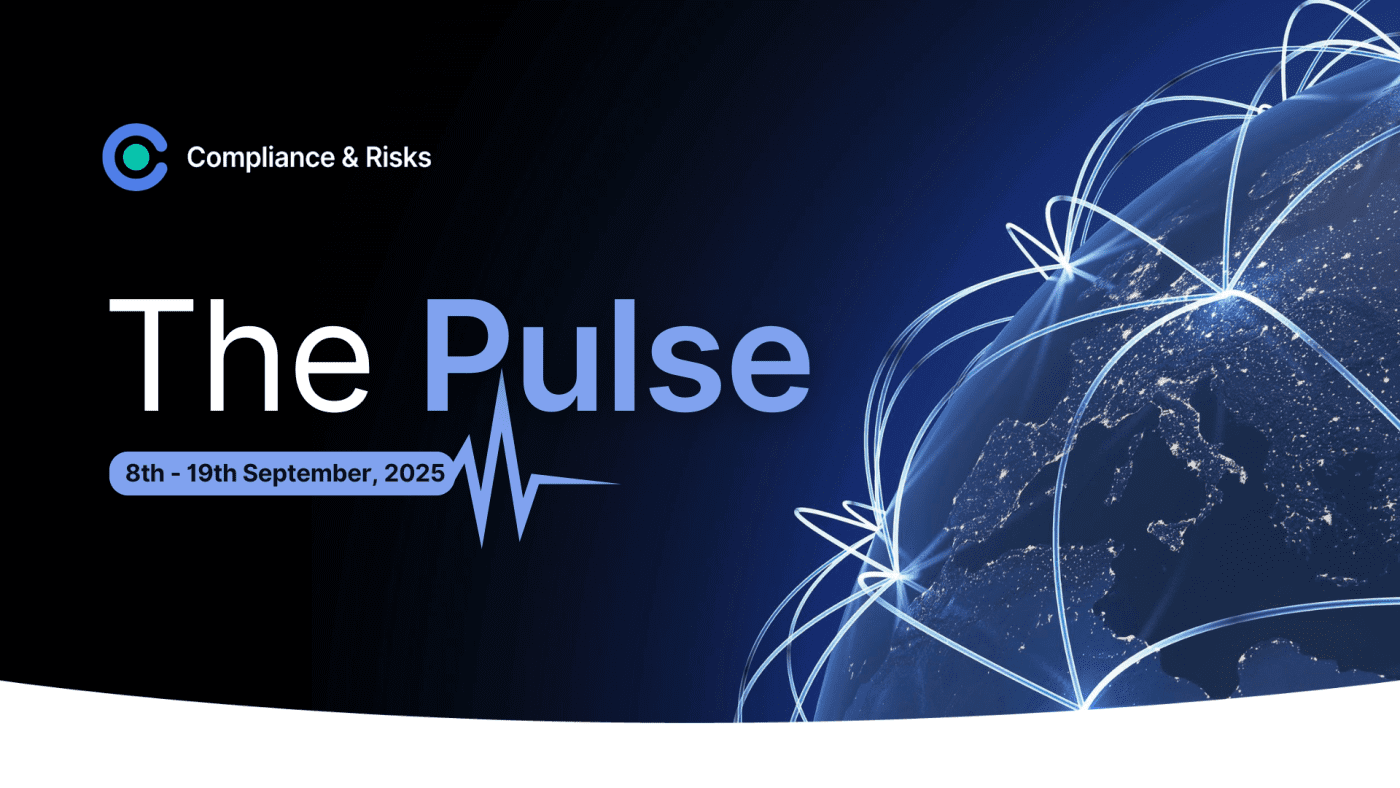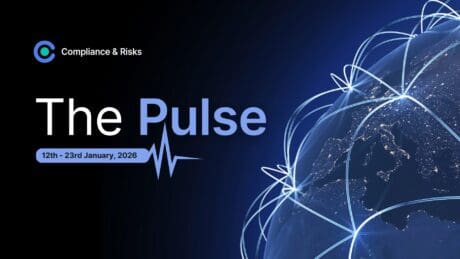
The Biweekly Pulse: 8th – 19th September – EU RoHS Exemptions, Global Sustainability Reporting Initiatives and SCIP Updates

The Pulse was originally posted on 24th September, 2025. Further regulatory developments may have occurred after publication. To keep up-to-date with the latest compliance news, sign up to our newsletter.
Check out the latest 2025 Regulatory Compliance Updates with The Pulse, your biweekly source for global regulatory insights!
This Week’s Trending Sources in C2P
- Chemical Compliance in Latin America: Recent Developments and Trends, White Paper, September 2025
- Product Safety in the Digital Age: Understanding New Cybersecurity Rules, Guide, September 2025
- USA: Appropriate Test Standards under OSHA’s Nationally Recognized Testing Laboratory (NRTL) Program, List, 2025
What is Our Content Team Talking About?
EU RoHS Exemptions: Validity and Rolling Plan Amended to Reflect Latest Renewal Requests for Lighting Applications
by Joyce Costello, Senior Regulatory Compliance Specialist
The EU Commission has updated its RoHS exemption validity and rolling plan to reflect exemption requests made between 25 July (the date the EU Commission last issued the Plan) and 24 August 2025 (the application deadline for renewal of a number of Annex III exemptions) for Category 5 lighting.
The updated table provides an overview of Annex III and IV exemptions including their validity status and submitted exemption requests, replacing the previous Plan dated July 2025.
The modified plan is current to 16 September 2025, and now shows the accurate status of the following exemptions, since renewal requests for them were submitted to the Commission on 22 August, in due time. As such, these exemptions remain valid:
- Annex III n. 2(b)(4)-II
- Annex III n. 2(b)(4)-III
- Annex III n. 4(a)-I
- Annex III n. 4(c)(I-III)
- Annex III n. 4(e)
- Annex III 4(f)-II
- Annex III 4(f)-III
- Annex III 4(f)-IV
Exemptions are listed numerically, with the formulation, scope and applicability shown in the cell’s comment. Both exemption start and end dates are shown, along with the date of the first renewal request submitted in due time (at least 18 months before the end date).
Note that this document has no legal effect and is published by the EU Commission for reference purposes only.
What Are Our Knowledge Partners Talking About?
Global Sustainability Reporting Initiatives: A Shift Toward Transparency and Accountability
by RINA
In recent years, sustainability reporting has evolved from a voluntary disclosure practice to a regulatory expectation across the globe. As businesses face growing pressure from investors, regulators, and stakeholders to demonstrate environmental, social, and governance (ESG) performance, sustainability reporting frameworks have become essential tools for transparency, accountability, and long-term value creation.
Sustainability reporting is now a core requirement for many companies worldwide. It allows businesses to demonstrate how they meet regulatory obligations, and builds trust with investors, customers, and employees.
Regardless of the industry or location, the trend is moving toward mandatory ESG disclosures, meaning businesses must align with recognized global standards.
The following are some of the key updates in sustainability reporting initiatives around the world:
EU
Corporate Sustainability Due Diligence Directive, Deforestation Regulation, ESG ratings, Omnibus simplifications.
UK
UK Sustainable Disclosure Standards, Climate and Nature Bill.
Asia-Pacific
China ESG standards, Hong Kong & Japan International Sustainability Standards Board (ISSB) adoption, Australia/Canada taxonomies, Thailand taxonomy expansion.
UAE
Mandatory Green House Gas emissions disclosure law.
India
Securities and Exchange Board of India Business Responsibility and Sustainability Report (BRSR) mandatory for top 1000 listed firms.
Global
ISSB adoption expansion, Basel climate risk disclosure.
US
Proposal to mandate climate-related disclosures, including Scope 1 and 2 emissions.
What’s Next?
As global regulatory frameworks mature, sustainability reporting is no longer a “nice to have” – it’s a business imperative. Companies that proactively adopt robust reporting practices are not only better prepared for compliance but also more likely to earn trust from investors, customers, and employees.
At a time when environmental and social risks are material to financial performance, aligning with global reporting frameworks ensures businesses remain competitive, transparent, and forward-looking.
What Are Our Clients Asking About?
Is it mandatory to communicate the SCIP number to customers? If so, is it equivalent to the communication obligation under Article 33 of the REACH Regulation?
Answered by Dieudonné Ymedji, Senior Regulatory Compliance Specialist
There is no legal obligation to share the SCIP number with customers proactively. However, according to ECHA, providing the SCIP number of a notification for an article or complex object by the submitter to another duty holder as part or together with the information communicated down the supply chain under REACH Article 33 is considered a best practice that supports compliance for all parties involved in the supply chain. This approach offers practical benefits for downstream users and promotes greater transparency.
The SCIP notification is an additional requirement established under the Waste Framework Directive and should not be seen as a substitute for Article 33 of the REACH Regulation. Its primary goal is to improve waste treatment and recycling by providing information about SVHCs in articles to waste operators and authorities. In contrast, Article 33 imposes a mandatory communication obligation throughout the supply chain regarding the presence of SVHC in articles that exceed 0.1% w/w. It also requires that sufficient information is provided to ensure safe use for customers, and to consumers upon request.
Stay Ahead Of 2025 Regulatory Compliance Updates with The Pulse
Want to stay on top of 2025 Regulatory Compliance Updates?
All insights in The Pulse come directly from C2P – the trusted compliance platform used by over 300 of the world’s leading brands. With coverage across 195+ countries, C2P empowers you to achieve, maintain, and expand market access faster and with confidence.
C2P is an enterprise SaaS platform designed to meet your unique compliance needs. It brings together everything in one place – regulations, standards, requirements, and evidence – so you can manage compliance across the enterprise with ease.
Need more? Our tailored add-on packages unlock use-case-specific solutions, enriched global regulatory content, and direct access to a global team of subject matter experts and professional services.
C2P is your key to unlocking global market access.
- Accelerate time-to-market for products
- Reduce non-compliance risks that impact your ability to meet business goals and cause reputational damage
- Enable business continuity by digitizing your compliance process and building corporate memory
- Improve efficiency and enable your team to focus on business critical initiatives rather than manual tasks
- Save time with access to Compliance & Risks’ extensive Knowledge Partner network
Keep Your Finger on the Pulse of Regulatory News!
Join 30,000+ compliance professionals for 2025 regulatory compliance updates on hot compliance issues, market insights on the latest trends, and free regulatory webinars and whitepapers








